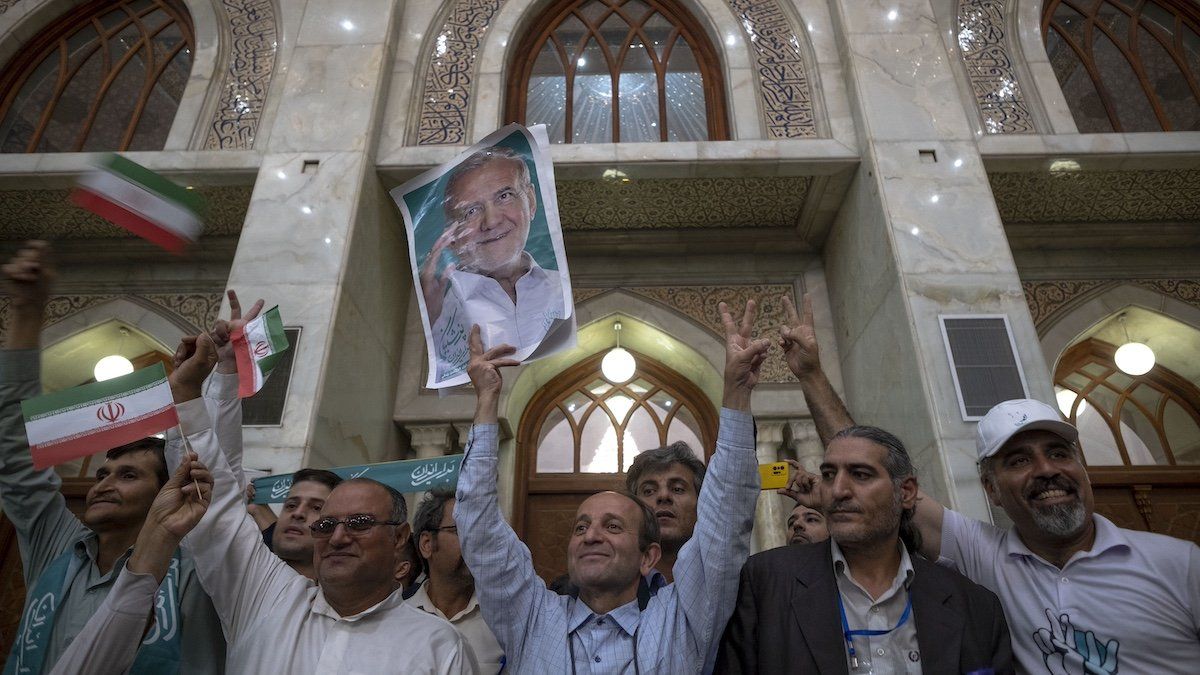Iran’s incoming president is 69-year-old heart surgeon and former Health Minister Masoud Pezeshkian, a moderate who has called for “constructive interaction with the world.”
Pezeshkian defeated hardline conservative Saeed Jalili in Friday’s runoff election, which saw a historically low turnout of just under 50%, though the second round attracted more voters than the first. He promised to ease Iran’s compulsory hijab laws and internet censorship, as well as revive talks over the 2015 nuclear deal to lift crippling economic sanctions.
Global Reaction. A number of world leaders, including those of China, Russia, Saudi Arabia, and India formally congratulated Pezeshkian. The US State Department remains skeptical, however, stating that Iran’s elections were “not free or fair” and that Washington has “no expectation these elections will lead to fundamental change in Iran’s direction or more respect for the human rights of its citizens.”
Could Pezeshkian bring real reform? His room to maneuver is limited by the conservative Iranian establishment, which invests all true power in the Iranian Revolutionary Guard Corps, the Guardian Council, and ultimately Supreme Leader Ali Khamenei.
On foreign policy, Eurasia Group Middle East Analyst
Gregory Brew foresees little change. “Iran’s strategic stance and its approach to the Israel-Hamas conflict is unlikely to shift as a result of this election. Pezeshkian will pursue nuclear negotiations with the US, though substantive progress is unlikely before the US election.”
